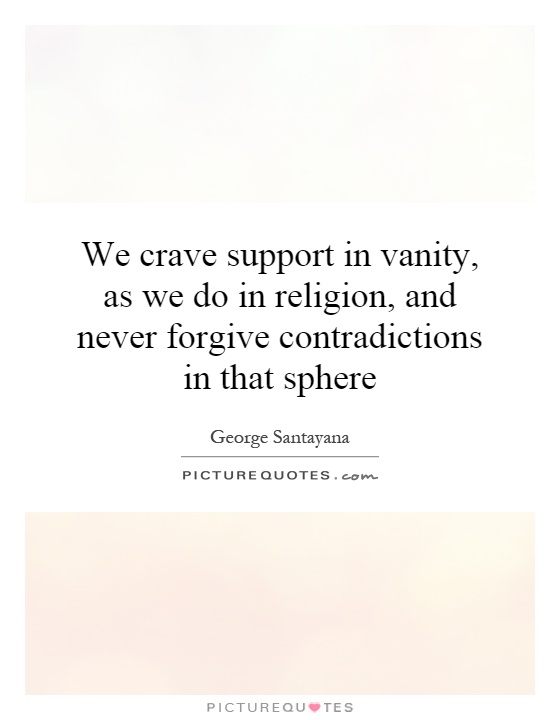We crave support in vanity, as we do in religion, and never forgive contradictions in that sphere

We crave support in vanity, as we do in religion, and never forgive contradictions in that sphere
George Santayana, a renowned philosopher and essayist, once remarked that humans crave support in vanity as they do in religion, and never forgive contradictions in that sphere. This statement sheds light on the complex nature of human vanity and the importance of consistency in our beliefs and values.Vanity, often associated with excessive pride or self-admiration, plays a significant role in shaping human behavior and interactions. It is a fundamental aspect of human nature, influencing how we perceive ourselves and others. In a society that places a high value on appearance and social status, vanity can be a powerful motivator for individuals seeking validation and recognition.
Santayana's assertion that we crave support in vanity as we do in religion highlights the deep-seated need for affirmation and approval in our lives. Just as religion provides a sense of purpose and meaning, vanity offers a sense of identity and self-worth. We seek validation from others to reinforce our beliefs and values, whether they are rooted in our appearance, achievements, or social standing.
Moreover, Santayana's observation that we never forgive contradictions in the realm of vanity underscores the fragility of our egos and the importance of maintaining a consistent self-image. When our vanity is challenged or contradicted, we may feel threatened or insecure, leading to feelings of resentment or defensiveness. We are quick to dismiss or ignore any evidence that contradicts our beliefs about ourselves, as it can be a blow to our sense of self-worth.












 Friendship Quotes
Friendship Quotes Love Quotes
Love Quotes Life Quotes
Life Quotes Funny Quotes
Funny Quotes Motivational Quotes
Motivational Quotes Inspirational Quotes
Inspirational Quotes